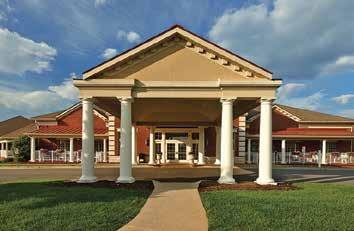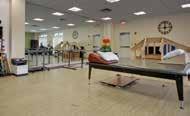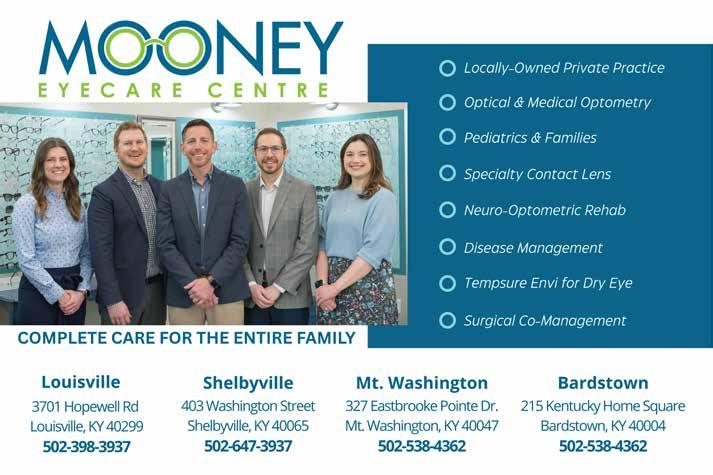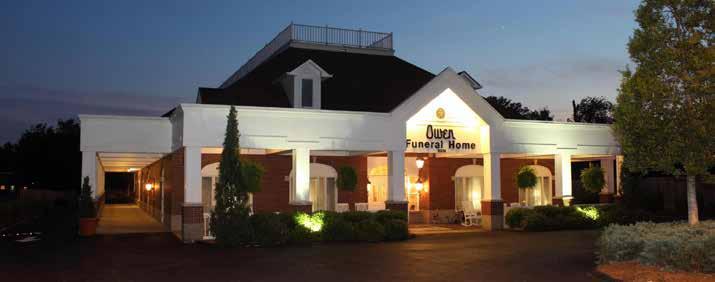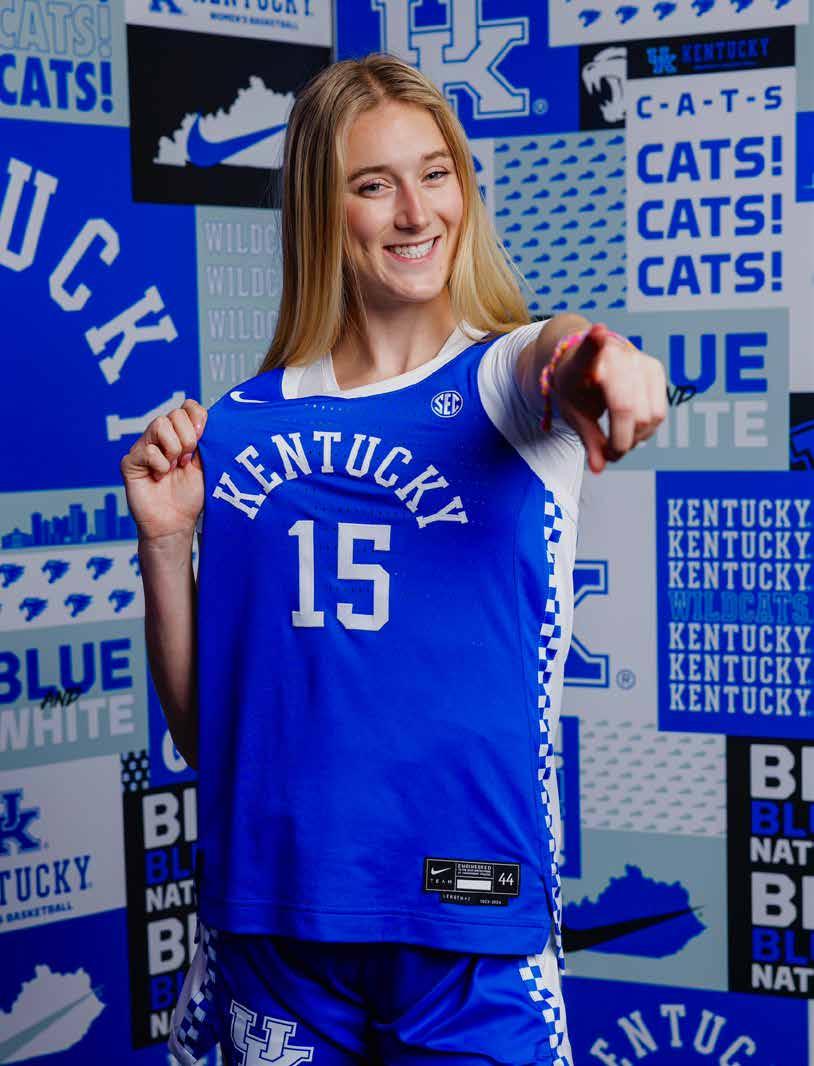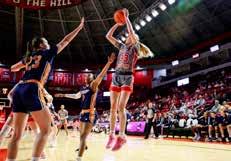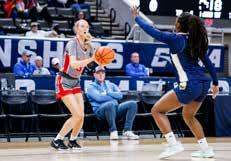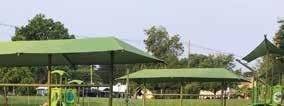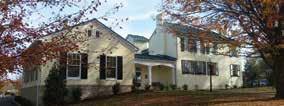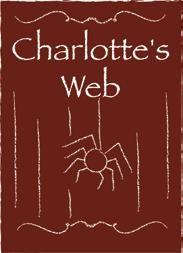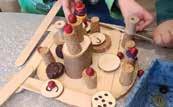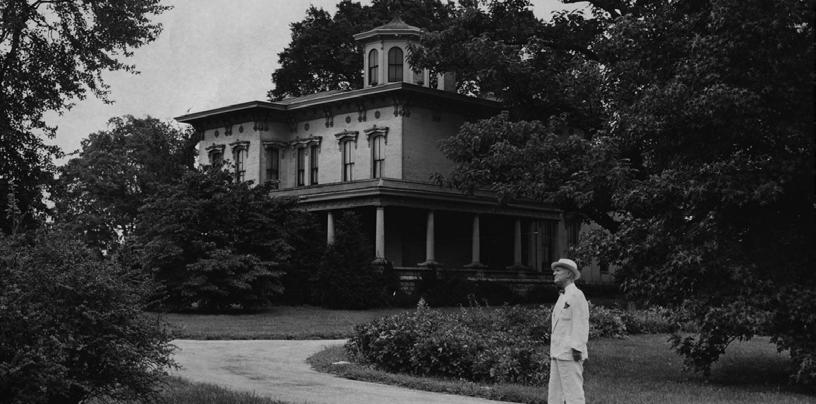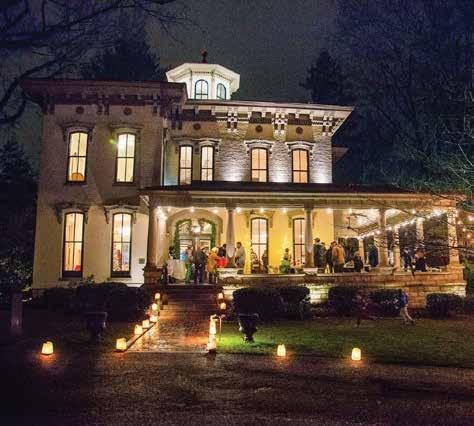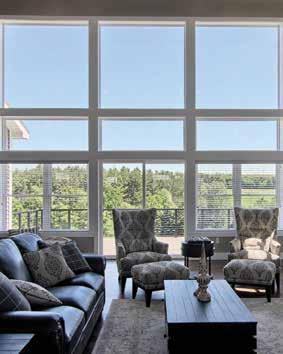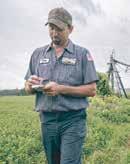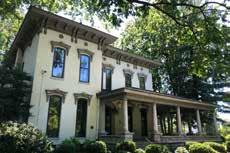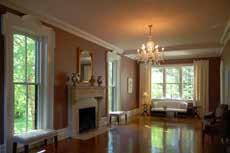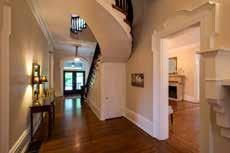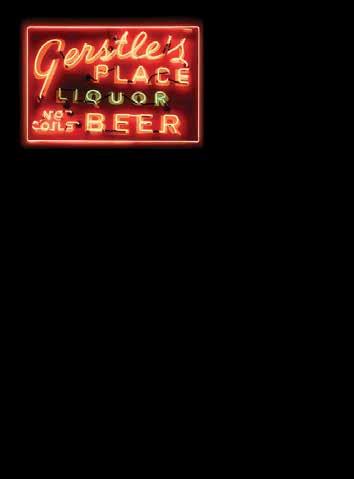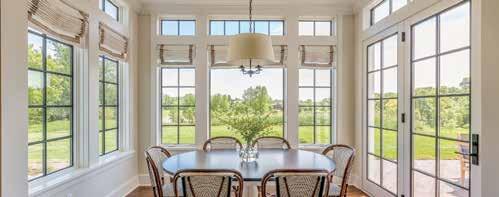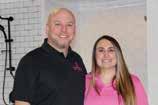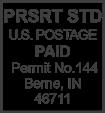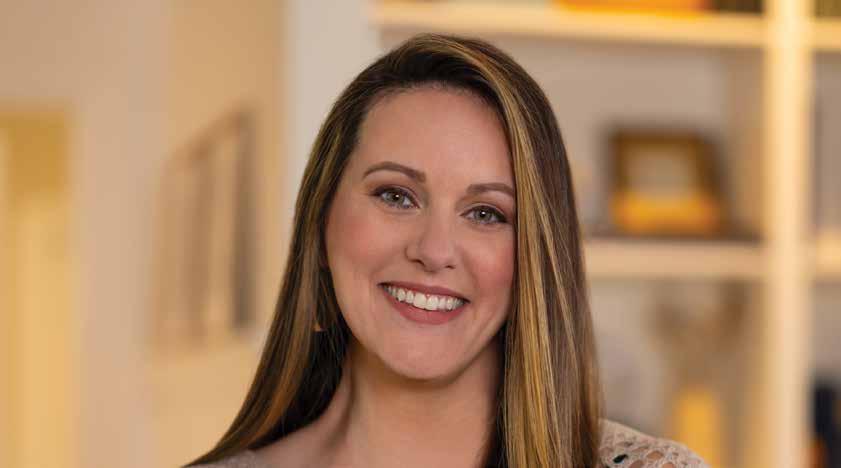VALHALLA POST ACUTE
As the premier 162-bed skilled nursing facility in Louisville, Kentucky, Valhalla Post Acute provides compassionate and personal skilled care 24 hours a day. We specialize in providing rehabilitation services in our state-of-the-art facility to help our residents regain their independence and return to the highest level of function possible. We have been proudly serving the community for 13 years.
VISITORS ARE WELCOME EVERY DAY OF THE WEEK. Come to see our residents and friendly staff in action. Feel free to contact us to learn more about the unique, sophisticated healthcare environment at Valhalla Post Acute.
St. Matthews Native Josie Gilvin Joins UK Women’s Basketball Roster
Louisville Ballet’s BrownForman Nutcracker Brings a Timeless Tradition to Life
PUBLISHER
COREY BOSTON corey@townepost.com (502) 407-0185
KEY CONTRIBUTORS
MELISSA GIBSON
GAVIN LAPAILLE ED PEAK UK ATHLETICS
WKU ATHLETICS
CARRIE VITTITOE
STEVE WISER
JULIE YATES
Chenoweth Appliances Marks 50 Years of Local Service
Waterfront Botanical Gardens’ Gardens Aglimmer Brings Light to the Season
Hensley Guttering
Sacred Heart’s Donna Moir Leads With Grace, Grit & Unmatched Legacy
Louisville’s Nancy Leahy Keeps Competing & Inspiring Through Senior Games
Crescent Hill’s PetersonDumesnil House Holds History, Mystery &
TOWNE POST NETWORK, INC. FOUNDER, CEO TOM BRITT tom@townepost.com (317) 496-3599
PRESIDENT JEANNE BRITT jeanne@townepost.com (317) 810-0011
CHIEF OPERATING OFFICER ERIN TURK
CREATIVE DIRECTORS VAL AUSTIN TONI EADS
EDITOR JOSH BROWN
TOWNE POST NETWORK, INC. 8800 North Street, Suite 117 Fishers, IN 46038 Phone/Text: (317) 810-0011
CONTACT THE PUBLISHER
Have a story idea or suggestion for the magazine?
BORNSTEIN GENERAL CONTRACTING
a former University of Louisville basketball player. Living behind Our Lady of Lourdes gave her the perfect opportunity to try nearly every sport.
“I played just about every sport,” she says. “I swam, played tennis, participated in club soccer, and later did volleyball, cross-country and track. Having my mom as a coach at Our Lady of Lourdes made a big impact on me. Her experience and knowledge of the sport helped a lot.”
During high school, Gilvin ran track and cross-country in addition to being a standout on Sacred Heart Academy’s women’s basketball team. As a junior, she recorded 27 steals during the state
Weatherby Park Playground
tournament, setting a Kentucky High School Athletic Association (KHSAA) tournament record. Both her junior and senior years, she was named to the AllState First Team. During her senior season, she was also designated the 7th Region Player of the Year and was a Kentucky Miss Basketball nominee.
“There could never be a better experience than when I played basketball at Sacred Heart Academy,” Gilvin says. “I had the best teammates, and we really bonded. Head coach Donna Moir and the other coaches, Matthew Carson, Mackenzie Moir and Amy Siegel, were great. While I was there, we won two state championships.”
After her time at Sacred Heart, she played for Western Kentucky University. Each year, she worked hard, set goals, and continued to improve. Last season, as a junior, she set career highs in almost every category. She started all 32 games and averaged 13.1 points, 6.3 rebounds, 2.3 assists and 2.6
steals per game. Coming off a stellar junior year, she took the plunge and entered the transfer portal.
Now a senior at UK, Gilvin is the only native Kentuckian on the 12-member Wildcat roster. With 20 hours of practice per week, she is going full speed while adjusting to Lexington and the new campus experience. She admits the atmosphere feels different.
“It’s not only larger, but the enthusiasm for sports is a bigger vibe,” she says. “People have been welcoming. They’ve come up to me and said how excited they are for the season to start.”
When asked what advice she would give aspiring college athletes, Gilvin says, “Know what you want. Find something you love or else you won’t enjoy it. My dad always wanted me to play soccer, and I liked track. I could have been happy doing either, but basketball has a different vibe. It’s a long
season, and you spend a lot of time with your teammates. A good team develops connections and chemistry. If you put a certain amount of work in, you see it pay off. You begin to love it and have fun. It’s not hard work anymore.”
Gilvin plans to make the most of her senior year. Her dedication and hard work have paid off, earning her a spot on the Wildcat roster. She knows she will have plenty of support in the stands since her grandmother, uncles, aunts and cousins are local. Most of all, she hopes she can bring something to the team. Her ultimate wish is for the team to qualify for the 2026 NCAA Women’s Basketball Tournament and make a run for the championship.
To view the UK 2025-26 women’s basketball schedule, visit ukathletics.com/ sports/wbball/schedule/. Home games are played at the historic Memorial Coliseum, Avenue of Champions in Lexington.
HOUSE OF LEGENDS
CRESCENT HILL’S PETERSON-DUMESNIL HOUSE HOLDS HISTORY, MYSTERY & MEMORIES
Writer / Steve Wiser, FAIA
For more than 155 years, the PetersonDumesnil House has been an iconic symbol for the surrounding Crescent Hill neighborhood. It has served as a home for two families at the same time, an educational center, a place for community gatherings, and the site of hundreds of wedding celebrations. Some say it may even have a “haunting” presence. More on this folklore later, but first, here is the fascinating history of this distinguished structure.
Joseph Peterson, at age 25, moved to Louisville with his wife, Caroline, from Philadelphia in 1837. He was in the wholesale tobacco business, and Louisville was a major market for this popular agricultural product. Several years after their arrival, Caroline died, leaving Joseph to care for their young daughter, Carrie, who was born in 1839.
In 1859, Joseph acquired more than 30 acres of land located at what is now Frankfort and Peterson avenues from J.H. Colston. Peterson’s purchase of this property resulted from the 1857 marriage of his daughter Carrie to Jacob Hopewell Lindenberger. The Colston tract was just east of Lindenberger’s estate. Jacob was a banker and a member of the civic literary group, the Salmagundi Club, which advocated for the creation of the Olmsted Parks system.
The Lindenbergers had two daughters, Carrie (b. 1858) and Eliza (b. 1860). Then, in 1866, Jacob’s wife, Carrie, tragically died. Jacob later married Sarah “Sallie” Elizabeth Gamble, and
they, along with Carrie and Eliza, lived in the nearby Lindenberger house.
Wanting to be near his two granddaughters, Joseph Peterson built this house, which was completed in 1869. While there is no documentation, the design is attributed to architect Henry Whitestone, a prominent residential designer in mid-1800s Louisville. Among his many notable clients were J.B. Wilder (Bashford Manor), Joseph Tompkins (Tompkins-Buchanan House at Spalding University), James Irvin, Rev. Stuart Robinson, and the Brandeis family, whose son Louis later became a U.S. Supreme Court justice.
Whitestone created an exquisite country villa for Peterson. The exterior is in the classic Italianate architectural style, with bracketed eaves and vertically elongated narrow windows. A cupola on top is a prominent design feature, serving as both an observatory of the surrounding landscape and a ventilation system. With the large windows opened, warm air is drawn up through the central stair in a chimney-like effect and exhausted out, cooling the house.
The first floor has a large living room on the east side, with a smaller parlor and dining room on the west. The kitchen, with pantry, is in the rear. On the upper floor are four bedrooms and two full bathrooms.
Besides being in the tobacco business and building this house, Peterson is credited with
constructing the Carter Dry Goods Building (now the Kentucky Science Center, 727 W. Main St.) in 1878. He also built the Fort Nelson Building (1888–89) at the northwest corner of West Main and Eighth streets, now home to Michter’s Distillery.
Carrie Lindenberger married Edward Rowland in 1878, at age 20. Rowland was once an auditor for the L&N Railroad and later joined the Carter Dry Goods Company as vice president, then succeeded as president in 1901.
Eliza married Harry Dumesnil in 1884, at age 24. They had two sons, Joseph Peterson Dumesnil and Edward Rowland Dumesnil, along with a daughter named Carrie, who died young. Harry was also employed by the Carter Dry Goods Company as treasurer. There is no doubt Rowland and Harry’s positions with the company led to Joseph Peterson’s construction of their building.
When Joseph Peterson died in 1889, at age 77, Carrie L. Rowland and Eliza L. Dumesnil jointly inherited the house. With its large upstairs having four bedrooms and two bathrooms, both the Rowland and Dumesnil families were able to occupy separate living quarters. Their father, Jacob, died in 1900 at age 75. He and Sarah were living at 122 W. Ormsby Ave. at the time of his death.
When Edward Rowland died in 1911, Harry Dumesnil succeeded him as president of the
Carter Dry Goods Company. In 1932, Barret Junior High School was built south of the property, on land donated by the Rowland and Dumesnil families.
Carrie Rowland died in 1936, at age 78, leaving Harry and Eliza living in the house. Harry died the next year in 1937, which left Eliza alone. In 1948, Eliza sold the house to the School Board but continued to live there until her death in 1950 at age 90.
Besides the Barret school, other property changes included selling off parts of the estate. In 1905, Frank Russell was the first to build a distinctive house here at the southeast corner of Peterson Avenue and what is now George Rogers Clark Place. Also constructed in 1905 was the nearby George Rogers Clark School. The Kurfee-Farnsley house, at Galt and Rowland, was completed in 1915. In 1922, Crescent Hill United Methodist Church was built at Frankfort and Peterson avenues.
The School Board used the Peterson-
Dumesnil House as a “teacher’s retreat,” where meetings and other educational functions were held. In 1977, the Crescent Hill Community Council leased the house from the School Board. After raising more than $150,000, the Council purchased it in 1984. For more than 60 years, the PetersonDumesnil House has served as a civic centerpiece to the surrounding neighborhood, annually hosting the 4th of July festival as well as dozens of weddings each year.
Joseph Peterson’s fine mansion wasn’t the only one in this area. Chatsworth, at the northeast corner of Frankfort and Ewing avenues, was home to the George Keats Speed family. “Clifton” was the Joshua Bowles/ Frantz family house at Sycamore and Clifton Avenue. Dr. William Galt’s estate, known as “Repton,” sat across Brownsboro Road on Ridgedale. Further east off Frankfort Avenue, on Kennedy Court, was the magnificent home of Thomas Kennedy, called “The Turrets.” Still, this was a semi-rural area, where Valentine Franck had his pig farm just east of the Peterson-Dumesnil House.
Only the landmark Peterson-Dumesnil remains. Repton was severely damaged by fire; Chatsworth was demolished for an apartment complex, which bears its name; Clifton was replaced by a senior living facility; and the Turrets was destroyed in the April 3, 1974 tornado. That tornado narrowly
missed the Peterson-Dumesnil House by one block. So why has the house survived past its sesquicentennial? Some think it has an angellike protector.
A folklore anecdote from the 1950s tells of a young girl who became lost and wandered onto the grounds of the Peterson-Dumesnil House. A “lady in white” supposedly came out of the house, took her by the hand, and told her to sit on the porch steps to wait for her mother. Shortly thereafter, the mother found the child there. The girl said a “lady in white” had helped her. As the mother departed the property, she turned back and saw the house lights, which had been on, suddenly switch off. No one was inside at the time. Ever since, people have claimed to see the “lady in white” floating about the house.
Numerous catering staff, cleaning up after events, have said they’ve seen her there. Who is this “lady in white”? Apparitions are normally associated with places where a tragic death has occurred, but there is no record of any such death at the Peterson-Dumesnil House.
Further research revealed one devastating episode, though it happened three years prior to the house’s construction. Carrie Lindenberger died in 1866, in her mid-to-late 20s. One month before her death, on Aug. 24, 1866, three infants — Jacob, Richard and
Thomas Lindenberger — were buried in the Peterson family plot in Cave Hill Cemetery. All three were triplets. It is believed that Carrie Lindenberger, wife of Jacob and daughter of Joseph and Caroline Peterson, died from complications of childbirth. One can only imagine the heartache this brought to both families. Based on this most painful episode, the “lady in white” is most likely Carrie Lindenberger — if you believe in ghosts, that is.
Whether or not there is a “lady in white,” the Peterson-Dumesnil House remains one of Louisville’s grand showcase historical homes. It was placed on the National Register of Historic Places in 1975 and designated a Louisville landmark in 1976.
The house is open for public viewing during the 4th of July festival and at other civic functions. To maintain the house and property, charitable donations are welcome to the Peterson-Dumesnil House Foundation (a 501(c)(3) tax-exempt organization) at 301 S. Peterson Ave., Louisville, KY 40206.
Steve Wiser, FAIA, is a local architect, author and historian. He has written more than 12 books on Louisville architecture and history, including “Historic Houses of Louisville” and “Haunted Houses of Louisville.”
MONDAY:
KARAOKE: 9-1AM
$2 MINI BURGERS
$5 QUESO & BONELESS WINGS
$4 HIGH NOON
TUESDAY:
TRIVIA: 7-9PM $4 OLD FORRESTER
WEDNESDAY:
THURSDAY:
FRIDAY:
For advertising information, contact:
COREY BOSTON
corey@townepost.com (502) 407-0185
Myka G.
Metastatic Breast Cancer, 2017





